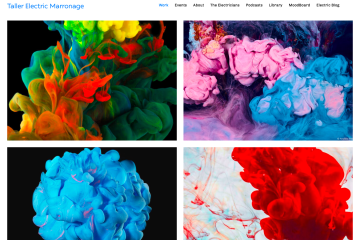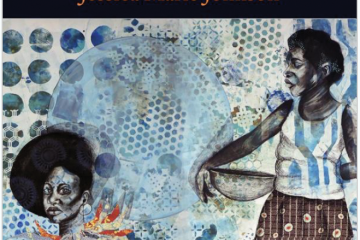There is a general belief that data is objective, neutral, and therefore accurate. "Numbers don't lie," goes the oft-repeated maxim. But what about the people interpreting the data: can individuals really be objective or neutral? Who gets to decide which data is important? And what about the stories and truths that data can't tell?
A team of researchers, on a mission to address some of these weaknesses, has received a $300,000 planning grant from The Andrew W. Mellon Foundation for their project, Black Beyond Data: Computational Humanities and Social Sciences Laboratory for Black Digital Humanities. By weaving together three digital humanities projects, Black Beyond Data connects the fields of digital humanities, Black studies, and data and computation to create a critical mass of scholars and research using digital humanities against racial injustice.
"Data, technology, and computation continue to be seen as objective, neutral, and removed from the histories of slavery, colonialism, and empire that impact our everyday lives, when in fact, these are entangled histories," says Jessica Marie Johnson, assistant professor in the Department of History and Black Beyond Data's co-principal investigator.
Black Beyond Data draws on an interdisciplinary scholarly community at Hopkins that has already developed strengths in computational humanities and Black Studies, Johnson says. It will bring together three existing projects. One is the Black Press Research Collective, which focuses on the historical and contemporary role of Black newspapers in the U.S., African Diaspora, and Africa and is headed by Kim Gallon, visiting associate professor in the School of Medicine's Department of the History of Medicine. Another is Johnson's LifexCode: Digital Humanities Against Enclosure, which incubates antiracist research projects and practices. The third is the Risk and Racism Data Project, which explores the quantification of race in medical knowledge and is headed by Alexandre White, assistant professor in the Department of Sociology and the School of Medicine's Department of the History of Medicine.
The lab will be housed in the computational humanities and social science laboratory of the Sheridan Libraries, headed by Sayeed Choudhury, associate dean for research data management and director of the Digital Research and Curation Center; and the Center for Medical Humanities and Social Medicine, headed by the School of Medicine's Jeremy Greene, a professor of Medicine and the History of Medicine, director of the Department of the History of Medicine, and founding director of the Center for Medical Humanities and Social Medicine. Tom Lippincott, assistant research professor and director of digital humanities in the Alexander Grass Humanities Institute, will serve as a computational scientist in residence, leading development and application of Starcoder, an unsupervised deep learning framework.
"We often hear about open science," Choudhury says. "Black Beyond Data represents a foundational effort to explore the impact of humanities using open data and open source software through shared infrastructure and direct engagement with local community partners."
A central objective of Black Beyond Data is to use innovative methods and technologies to visualize narratives about Black life and create communities of scholars, teachers, students, and community members who share common interests and collaborate to deepen their understanding of how data can be mined and analyzed to center Black humanity.
The lab will cover a wide range of topics and themes. For example, while awareness is slowly growing around the long-standing medical and scientific racism that has contributed to illness and premature death in Black communities, little attention is paid to the rich history of Black Americans' efforts to mitigate racial health disparities. Black Beyond Data is poised to help correct this imbalance in the historiography of Black health disparities, says Gallon, who is working on a book project that examines the history of health informatics, race, medicine, and public health in the 20th century. Without a full history of African American agency in the unfolding of the American public health system, contemporary healthcare providers and public health workers lack historical models on which to develop new public health campaigns and strategies that can counter systemic bias in the healthcare system, she says.
A critical component of the lab's work is inclusive, respectful community engagement. As an example, members will work with the St. Francis Neighborhood Center in West Baltimore, whose mission is to reduce intergenerational poverty and which has been partnering with the Sheridan Libraries' Open Source Programs Office to open a smart center featuring computers with internet connectivity and spaces for collaboration and workshops. Gallon plans to hold workshops on race, health, and data literacy, and the lab will co-produce curricula with grassroots organizers and community organizations like SFNC who challenge assumptions about race, pathology, and difference in data.
Black Beyond Data's ultimate goals are to become a resource for Black digital humanities scholars focused on computational humanities and social justice. Programming, curriculum, and materials will provide other labs models for best practices. Materials will be publicly accessible and programming models will be available for replication, offering new ways for community organizers and academics to use computational analysis and data science methodologies.
As an open-source body of work that speaks to the Black experience and is accompanied by best practices for engaging data in Black lives, the lab will shift the conversation away from the presumed neutrality of data, Johnson says, and toward a reshaping of society through a more humane and historically reflective relationship to the nature of Black life beyond data.
Posted in Arts+Culture, Politics+Society
Tagged humanities, digital humanities










